What is a “Qualified Income Trust”?
As of January 1, 2020, in Florida, in order to qualify for Medicaid benefits, the applicant’s gross income must be less than $2,349.00 per month. In general, if the Medicaid applicant’s monthly gross income exceeds this amount, the applicant will be denied Medicaid benefits. The only current exemption to this barrier is the establishment of a “Qualified Income Trust” (QIT). A QIT is an irrevocable trust that can be established to receive the Medicaid applicant’s excess income. Once the trust is established, a checking account is opened in the name of the trust. Simply put, establishing a QIT allows the applicant’s income to be exempt from the “income cap” by flowing the applicant’s excess income through a special checking account each month.
The QIT is irrevocable and cannot be changed after it is signed. Only the applicant’s income can be deposited into the checking account and only certain payments may be made out of the account. After the Medicaid recipient dies, the balance of the QIT will be paid to the State of Florida up to the total amount of Medicaid payments made on the recipient’s behalf.
If you have specific questions regarding asset protection planning and Medicaid eligibility, the experienced elder law attorneys of Bach, Jacobs & Byrne, P.A. are here to assist you. Call us at (941)906-1231 to set up a consultation.



